"Merger is something that needs to be done, and even needs to be done sooner," said Master Nguyen Phuong Lam, Director of the Vietnam Federation of Commerce and Industry, Can Tho Branch (VCCI Can Tho).
According to Master Nguyen Phuong Lam, the current administrative apparatus model of Vietnam is showing many shortcomings, causing negative impacts on the country's socio-economic development. He believes that the "fragmentation and cumbersomeness" of this apparatus is slowing down the progress of social and economic resources.
In a more specific analysis, Master Nguyen Phuong Lam pointed out that this is reflected in the division of administrative units. "We divide localities into 63 provinces and cities mainly based on geographical space, leading to inefficiency in management and operation," he said.
He gave a typical example of the Mekong Delta region, with an area of over 40,000 square kilometers but consisting of 13 provinces and cities, which is creating significant obstacles for the development of the entire region.
Master Nguyen Phuong Lam emphasized that Vietnam is facing an urgent problem: how to escape the middle-income "trap". He said this is an important development "threshold" that Vietnam needs to overcome. "This is a ripe opportunity after the research process of the Party, managers, scientists... forcing us to change to develop and revive the economy", he affirmed.
From the above analysis, Master Nguyen Phuong Lam believes that merging administrative units is a "very timely, urgent, and necessary" policy. He concluded: "We cannot delay any longer in implementing this policy."
The merger of administrative units at all levels is considered an important solution in the current context of integration and development. According to the Director of VCCI Can Tho, one of the biggest benefits of the merger is that state administration will be improved.
This person believes that the "surplus of people" in the administrative apparatus leads to wasted time and increased cost burden. "On average, a civil servant only does 30-40% of the workload because we have too many people," said the Director of VCCI Can Tho. Therefore, the merger is expected to help significantly reduce administrative costs.
Master Nguyen Phuong Lam also gave an in-depth analysis of the benefits of merging in planning work. He said that current practice shows the inadequacy of having 63 plans for 63 provinces and cities, while there are only 6 economic regions. "Each plan takes a lot of time, money, effort and every 10 years the plan has to be changed once," said Master Nguyen Phuong Lam. He said that merging provinces with appropriate scales in terms of area and population will help planning work become more economical and synchronous.
"In addition, in the current planning, we still have overlapping laws and administrative boundary problems between localities. If we merge, the planning space will be removed and the quality will increase," Master Nguyen Phuong Lam emphasized.
Regarding economic benefits, Master Nguyen Phuong Lam affirmed that the business community will benefit greatly from the provincial merger, due to the expanded economic scale. He said that, in recent times, localities have wanted to have their own economic development structure, creating their own industrial clusters, small and fragmented. "If we merge, we will form large industrial clusters, concentrated urban areas, and increase the agricultural area, helping the agricultural economy to develop further," he said.
Master Nguyen Phuong Lam also pointed out that the merger will help improve the efficiency of public investment. For example, in the past 10 years, the Central Government has invested a lot of public investment in the Mekong Delta, but the disbursement efficiency and development speed have not been commensurate. The main reason is due to limitations in administrative boundaries, capacity and overlap in management, and illogical administrative procedures between provinces.
The Mekong Delta (MD) is known for its great potential for economic development, but the current administrative division is creating barriers. Experts say that merging administrative units is the solution to exploit the region's full potential.
Mr. Nguyen Phuong Lam said that the Mekong Delta has special advantages in economic development planning. He cited: "We have advantages in planning for the Mekong Delta region such as the Long Xuyen quadrangle (Dong Thap, An Giang, Kien Giang, part of Can Tho, ...) with potential for agricultural production". According to him, if this area is divided into a province, this province can focus on strongly developing the agricultural economy in a modern direction.
Similarly, coastal provinces such as Bac Lieu, Ca Mau, Soc Trang... can also be planned into an administrative unit to focus on developing the seafood economy.
Mr. Nguyen Phuong Lam emphasized that the merger of administrative units will create favorable conditions for economic development in the whole region. "The task for the whole region is to develop the economy effectively and efficiently, create jobs for the people... That is a regional story. When merging, we will solve the problem of labor resources and attract new projects when there are no longer barriers between many provinces," he said. He also said that it is appropriate for the Mekong Delta region to be divided into 3-4 provincial units.
Master Truong Chi Hung, lecturer at An Giang University, said that the Mekong Delta has a common cultural foundation, which facilitates the merger. "The Mekong Delta as a whole has a river culture foundation that influences the cultural, material and spiritual life of the people," he said.
He also pointed out that, geographically, the merger of provinces will not cause too much change. "An Giang is the source of Hau River, Dong Thap is the source of Tien River, Soc Trang and Tra Vinh are prominent in Khmer culture or saline alluvial groups such as Ca Mau, Bac Lieu, Soc Trang... It can be seen that the cultural foundation between adjacent localities is not much different", Master Truong Chi Hung shared.
Master Truong Chi Hung believes that the opportunity to carry out the merger has come. "We have everything ready, just waiting for an opportunity and that is now," he said. The important issue now is to prepare an elite commune-level apparatus, capable of best handling the assigned workload.
In the "lean revolution", the business community plays a very important role in promoting economic development. Businesses will benefit from a streamlined and efficient administrative environment and simple procedures. Thereby creating a driving force to attract investment and economic growth.
However, for businesses to develop sustainably, the government needs to continue to improve the investment environment, increase support for businesses to innovate and link domestic and foreign value chains, especially in the agricultural sector.
According to Dr. Tran Huu Hiep, former full-time member and Director of the Economic Department - Southwest Steering Committee, when talking about enterprises, we should not only refer to state-owned enterprises but also to the private economy. Over the past 3 decades, the private economic sector in Vietnam has had remarkable development, transforming from a small, fragmented economic sector into an important pillar of the economy.
Statistics show that the private economic sector currently contributes approximately 50% of GDP, creates jobs for 85% of the country's workforce, contributes nearly 30% of total export turnover and about 56% of total social investment. Therefore, from the perspective of enterprises, in addition to state-owned enterprises, it is necessary to focus on developing the private economy.
"The arrangement and streamlining of the apparatus, removing the district level to move to a larger administrative space, promoting the role of the grassroots level - the commune level - and the capacity of the provincial level, when viewed from the perspective of economic development, the role of the business community is especially important," said Dr. Tran Huu Hiep.
Although the Mekong Delta has strengths in agriculture and aquaculture, businesses, especially foreign businesses, investing in this field are still limited. In addition to sustainable agricultural development, it is necessary to link with other economic sectors, such as industry (using raw materials from agriculture), agricultural tourism, etc. to increase value.
"All these factors will pose the problem of rural agricultural development in the Mekong Delta, creating an attractive investment environment, more attractive to businesses in the future. To do so, we must have major policies to invest in transport infrastructure, agricultural infrastructure, human resource training, and linking agriculture with other sectors for sustainable development," Dr. Tran Huu Hiep expressed his expectations.
Dantri.com.vn
Source: https://dantri.com.vn/noi-vu/sap-nhap-tinh-de-phat-trien-bai-toan-kinh-te-va-loi-giai-tu-dbscl-20250319113334098.htm





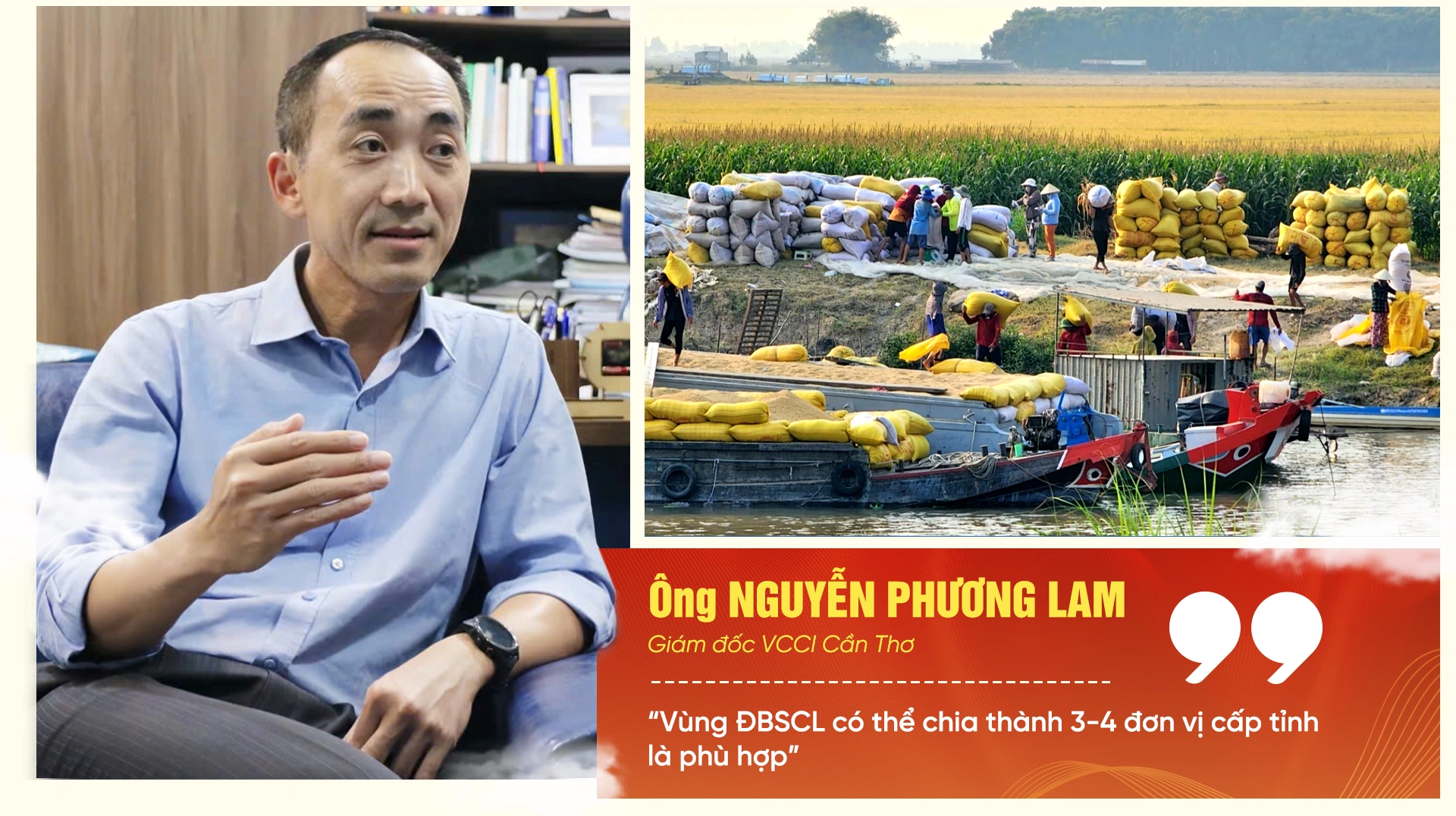





![[Photo] Demonstration aircraft and helicopters flying the Party flag and the national flag took off from Bien Hoa airport](https://vphoto.vietnam.vn/thumb/1200x675/vietnam/resource/IMAGE/2025/4/30/b3b28c18f9a7424f9e2b87b0ad581d05)

![[Photo] General Secretary To Lam presents the title "Hero of Labor" to the Party Committee, Government and People of Ho Chi Minh City](https://vphoto.vietnam.vn/thumb/1200x675/vietnam/resource/IMAGE/2025/4/30/08a5b9005f644bf993ceafe46583c092)
![[Photo] Ho Chi Minh City residents "stay up all night" waiting for the April 30th celebration](https://vphoto.vietnam.vn/thumb/1200x675/vietnam/resource/IMAGE/2025/4/30/560e44ae9dad47669cbc4415766deccf)










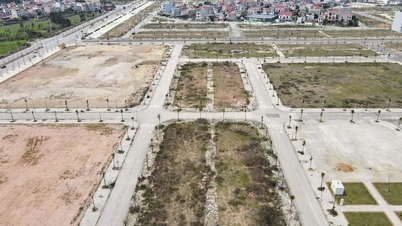













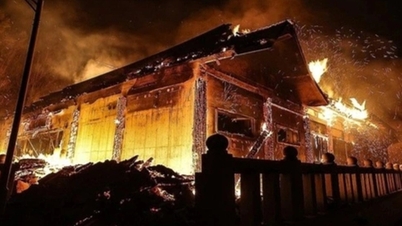


![[Photo] Flag-raising ceremony to celebrate the 50th anniversary of the Liberation of the South and National Reunification Day](https://vphoto.vietnam.vn/thumb/1200x675/vietnam/resource/IMAGE/2025/4/30/175646f225ff40b7ad24aa6c1517e378)













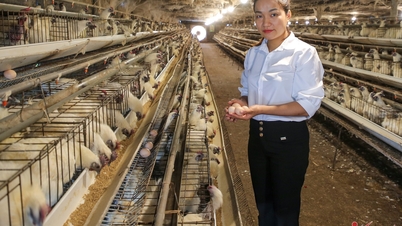

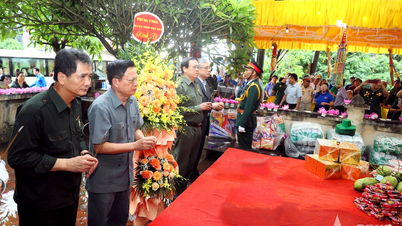




































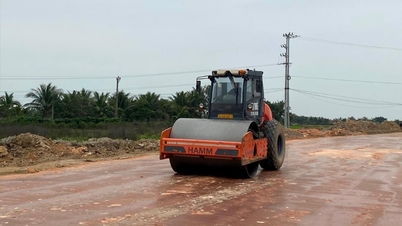














Comment (0)